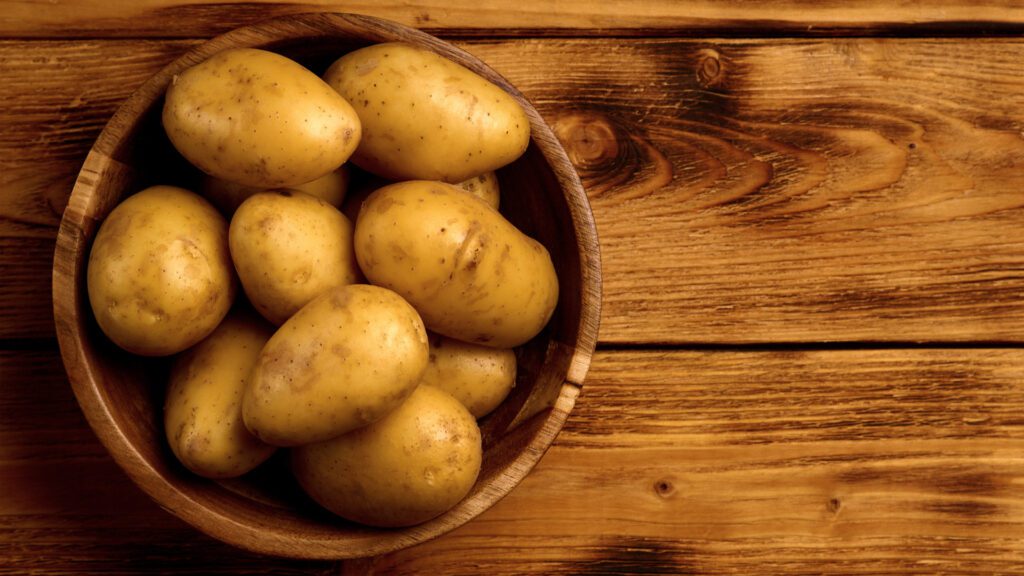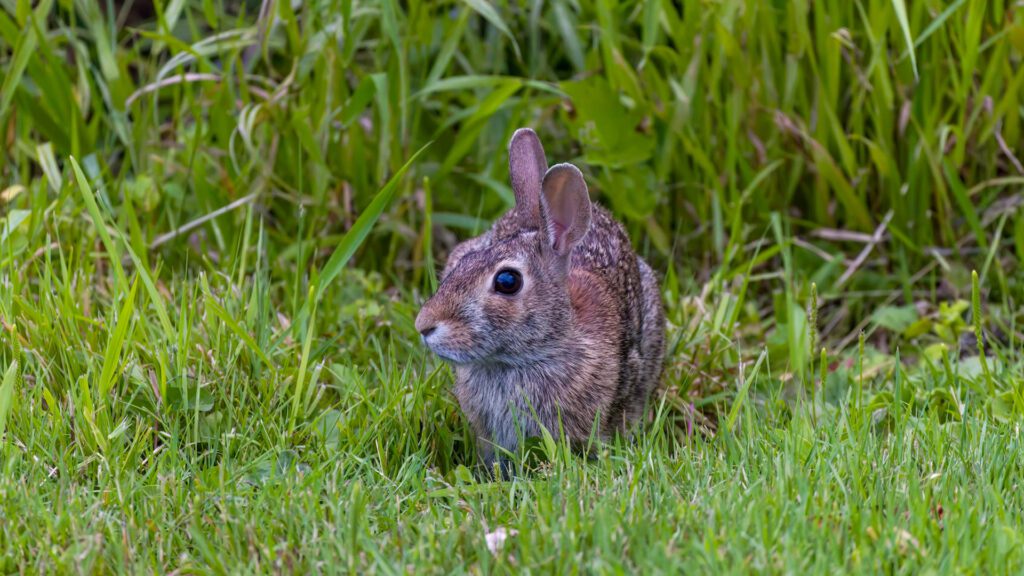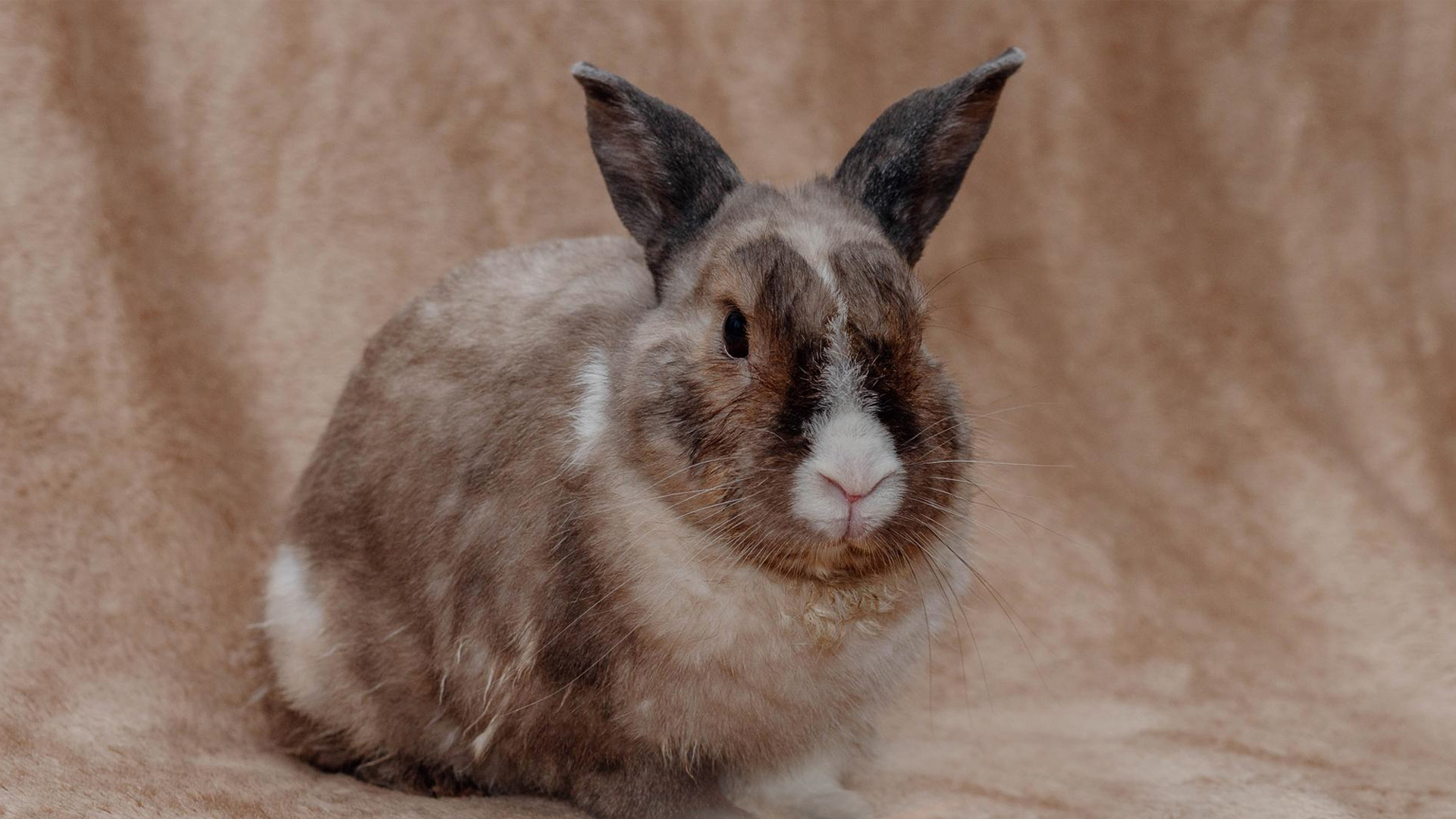Rabbits can eat almost anything. You offer potatoes or any other vegetable, and they’ll eat it without hesitation. But are potatoes really good for their health?
In this article, we’ll share details about what could go wrong if your pet rabbits start eating potatoes.
So, Can Rabbits Eat Potatoes?
No, potatoes and sweet potatoes should be kept away from rabbits. The nutritional composition of potatoes is toxic to rabbit’s health.
When it comes to your pet’s diet, it’s better to be safe than sorry. Instead, give your rabbit a healthy diet to keep them hopping and happy!
Why Potatoes Are Harmful to Rabbits
Rabbits love to eat, but they also have sensitive digestive systems. Rabbits need essential nutrients that are clearly missing in potatoes.
Lack of Fiber
Potatoes lack the fiber that is crucial for a rabbit’s digestive health. Rabbits thrive on a diet rich in fiber.
Too Much Starch
Potatoes are rich in starch, a complex carbohydrate that can be difficult for rabbits to digest properly. The high starch content causes digestive upset.
Potato peels are also rich in starch. It leads to gastrointestinal issues and diarrhea.
Solanine
Potato plants, leaves and stems contain Solanine, which adds more toxicity to potatoes. It becomes harmful to rabbits if ingested. It releases toxins that causes damages to the stomach of rabbits.
What’s in a Potato? Nutritional Value Breakdown

The nutritional content of potatoes is safe for humans but not safe for rabbits. We have explained this below for your convenience.
Calories
Potatoes have a moderate calorie count. Rabbits require very few calories to stay active and healthy, so eating potatoes might increase the calorie count, which is not suitable for rabbit health.
Carbohydrates
Potatoes have large quantities of carbohydrates because of sugar and starch. For rabbits, carbs, if ingested in large numbers, can disrupt their digestion. It becomes toxic for rabbits, leading to potential health issues.
Protein
Potatoes contain a small amount of protein, but it’s not suitable for rabbits. They need protein from sources like legumes and fresh leafy greens, which are more suitable for their digestive tract.
Fat
Fortunately, potatoes are low in fat. That’s a plus since rabbits thrive on a low-fat diet. However, the lack of fat doesn’t offset the other components that make potatoes less than ideal for bunnies.
Rabbit Eating Guide
Potatoes are a big no, but there are plenty of other options. Give food that is safe for rabbits to eat. Some are listed below.
Fresh Hay
Grass hay is the best food for your pet rabbits. Focus on providing large amounts of grass and hay so that your bunny gets all the energy.
Rabbit Pellets
Pellets are the common form of mixing two rabbit foods. Make sure you provide a balanced pellet to your pet. Otherwise, rabbits can’t digest it and start feeling uncomfortable.
Leafy Greens
Rabbits love leafy greens. These veggies are best to keep them healthy. But excess causes issues in rabbits. Make them eat small amounts.
Fruits
Foods like fruits are dessert for rabbits. However due to their high sugar and because they are high in calories, rabbits should avoid eating them.
Are Cooked Potatoes Good for Rabbits?
This a debatable question whether rabbits should be given cooked potatoes or not?
Cooked or fried potatoes eliminate most of the elements that are toxic to rabbits. Some pet owners suggest that potatoes that are roasted or mashed can be given as an occasional treats.
However, it is better to avoid them, because potatoes remains starchy even after cooking. As explained above, even a little amount of starch is harmful for your pets.
Are Potatoes Good For Wild Rabbits?

Wild rabbits can consume small amounts of potatoes, along with stems, and leaves. The is because they may have a good chance of getting more exercise.
Plus, living in the wild makes them eat things that are different from domestic rabbits. These include celery, sprouts, etc.. Their digestive system can handle the effects of vegetables like potatoes.
Final Thoughts
Potatoes don’t offer much nutritionally for rabbits. Their starch and lack of fiber can cause more harm than good.
Feed your bunny hay and fruit to keep to keep it healthy and happy. Consult with a veterinarian for more guidance.


